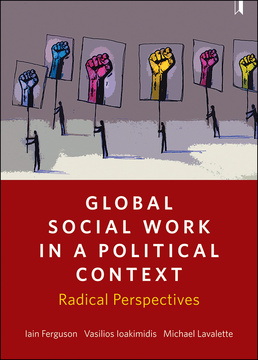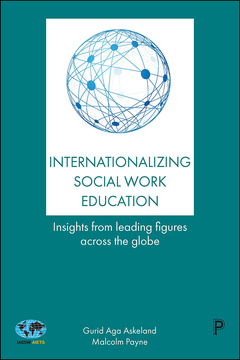ISBN
978-1447357353Imprint
Policy PressISBN
978-1447357346Dimensions
234 x 156 mmImprint
Policy PressISBN
978-1447357360Imprint
Policy PressISBN
978-1447357360Imprint
Policy PressEuropean and North American notions of helping - or managing - poor and marginalised people have deep roots in religious texts and traditions which continue to influence contemporary social policy and social work practice in ways which many do not realise.
Bringing together interdisciplinary scholarship, Mark Henrickson argues that it is essential to understand and critique social work’s origins in order to work out what to retain and what must change if we are to achieve the vision of a truly global profession.
Addressing current debates in international social work about social justice, professionalisation, and the legacy of colonisation, this thought-provoking book will allow practitioners and scholars to consider and create a global future for social work.
“This eminently written book is a must-read for all social work students, educators and practitioners. It opens up the gates for them to trace the origins of caring and sharing in their national/cultural contexts and to shape the future of global social work.” Manohar Pawar, Charles Sturt University and President, International Consortium for Social Development
“Bringing together the historical roots of social work with the cultural and religious influences on its global development, is an unprecedented operation. Mark Henrickson has produced a fundamental work that offers important guidance for building international social work.” Annamaria Campanini, President, International Association of Schools of Social Work
“A journey into religious and social history – Mark Henrickson provides insightful analysis of the origins of social work and raises important questions about its practice in the future. Brilliant, readable, accessible.” Peter Elliott, Vancouver School of Theology
Mark Henrickson is Professor of Social Work at Massey University.
1. Introduction
2. A Royal Responsibility
3. Inventing the Poor
4. Reforming the Poor
5. Capitalising the Poor
6. Industrialising the Poor
7. Liberalising the Poor
8. Professionalising Work with the Poor
9. A Global Perspective
10. Creating a Global Future














